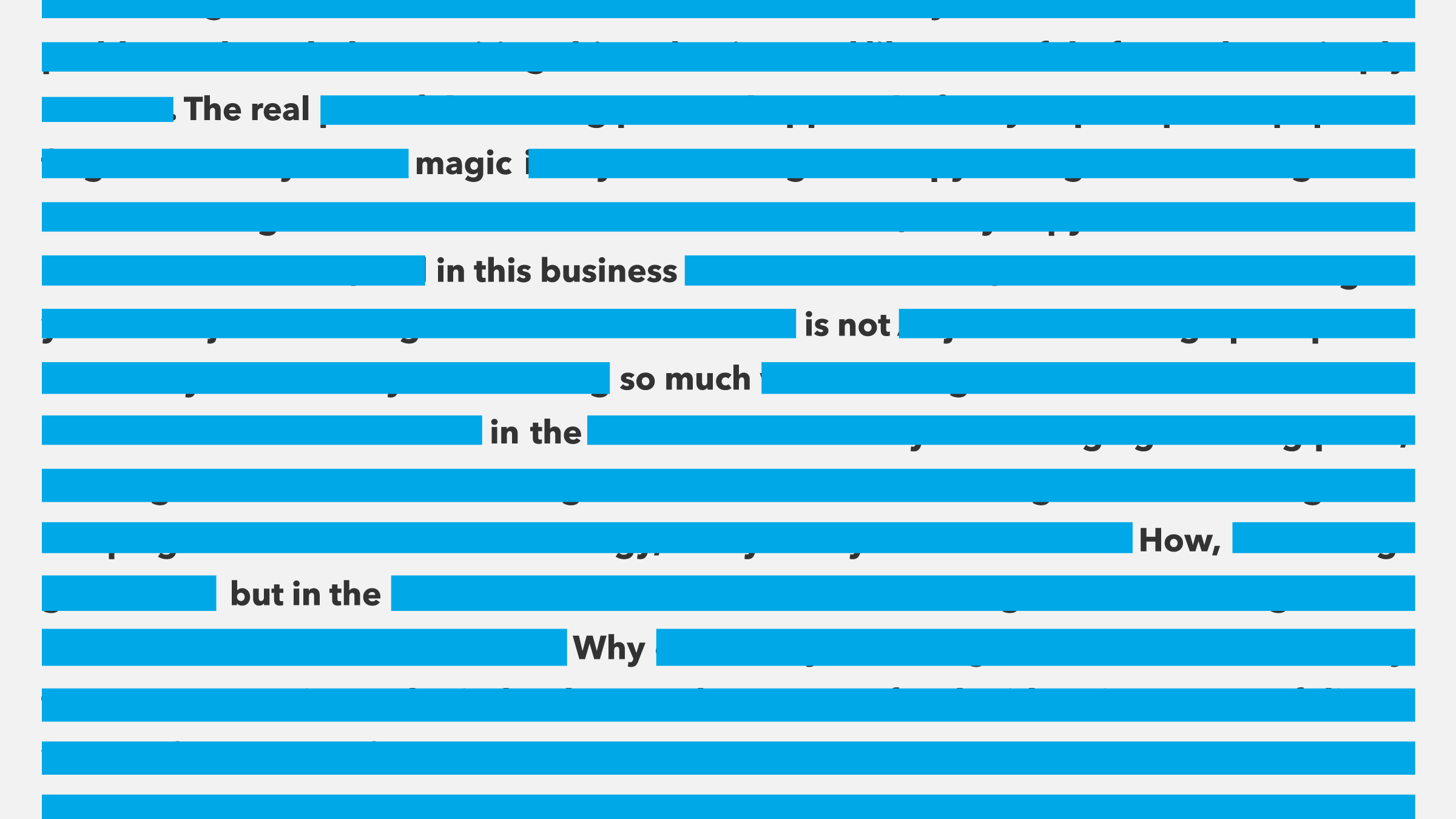What They Don’t Teach You in Copywriting Class
A while back, you might’ve read my colleague Rosie’s post about What They Don’t Teach You In Design School.
If you’re a writer, though, you were probably thinking, “But what about me?”
I’m here to say (happily) that all of Rosie’s advice could apply to writers, too. You’ll almost always be working as part of a team, so you won’t be on your own. Being able to present your ideas is incredibly important. Often, you’ll have input into the strategy or brief. And yes, clients are always going to make changes.
But this advice train doesn’t stop there (if it did, this would be a very short post). Current and future writers out there, listen up: there are some important things out there you didn’t learn in school, no matter what degree path you followed.
Maybe your creative writing degree left you feeling like there was no practical application for your work. Maybe your journalism courses left you feeling creatively unfulfilled. Or perhaps your marketing degree was all business.
And now you’re wondering how to take what you have learned, build on it, and make it work for you?
I have a few ideas, and in true internet listicle fashion, the first one will blow your mind.
Another writing class won’t make you a better writer on its own.
Sure, one of the best ways to become a better writer is to write more. Does a class let you do that? Yeah, I guess. But I believe you’d be better served by taking an experiential class instead. Something that takes you out of your comfort zone.
If you’re not in school anymore, even if you’ve been out of the classroom longer than I have, the advice still applies. Get away from that bright screen or tattered old notebook. Step outside, cook in the kitchen, walk to the workshop or go to the gallery – whatever whets your appetite or gets your mind moving, alliteration not required.
Why? Because it’s fun. It makes you think in different ways. And a broader range of experiences will give you something to write about—and make what you do write about more interesting.
To put it bluntly, no one wants to hear from a writer who only knows words.
So if you’ll excuse me, I’m going to take a break now.
Anyway. Back to it.
Most of writing isn’t putting words together.
In school there’s always a lot of emphasis on the mechanics of writing. On grammar, word choice and flow. That’s all important, but it can also be fixed.
Plus, if you’ve spent any time around professional writers and teachers, you’ve probably heard that 80% of writing is rewriting. “Write ten sentences and cut eight.” Yeah, the clichés can be brutal, but they’re clichés for a reason.
The problem? That whole “rewriting” bit makes it sound like most of the work happens after your first draft. But that’s simply not true. The most critical part of the writing process happens before you put a pen to paper or fingers to a keyboard.
I remember my advertising and copywriting classes being more about fulfilling a formula. Make sure it has a headline, body copy and a call to action. Check all the boxes, and you’re halfway to an A.
The harsh truth is, the real world won’t give you credit just for filling in the blanks. There are no As just for showing up. To put it another way, the words you’re writing aren’t the answer. The thinking and ideas behind them – that’s the stuff.
To make it as a writer in this business – whether you’re banging out blog posts, creating clever headlines, writing an entire website or inching toward an integrated campaign – it all starts with a strategy, a why. And you need to know how to use nuggets from that research to create an idea.
After all, the essence of being creative is being able to make connections where others only see loose ends. Essentially, I’m using a whole lot of words here to say you’re going to be judged as much (or more) for the ideas in your portfolio as you are for the specific words you’re using – or not using.
Case in point: I hired a writer once based on a couple of great pieces in his portfolio – one of which had no words at all. Bold move for a writer, but it’s a great segue to my next thought, which I’ve been dancing around.
And that brings me to one of the most important points. I’ve buried the lede here because well, if you’re a writer and you’re not willing to read, maybe you should try something else. But the most important piece of advice I can give also comes right out of Rosie’s post.
You have to be able to talk about your work.
If you haven’t had a public speaking course – well, there’s your idea for a non-writing class to take. And if you’re out of school, find one. Even if you’ve been doing this for many years, a course can help. I just took one last year, and trust me, it’s well worth your time.
One of the most important things you’ll learn in any public speaking class is to talk to your audience. Whether you’re talking to a client or prospective employer, remember this isn’t about you, this is about them. How can you make your experience, ideas and process relevant to them? That’s the code to crack.
I’ve worked with too many young writers who, when they present their work, focus on the process to get to an idea. The real magic in this business is not so much in the how, but in the why. As you talk about your work, keep this in mind. Why did you make the key decisions that led you to this point? Why did you talk to this audience, with this tone, using these words?
Of course, the key to speaking is not only knowing what to say, but when to say silent.
And indeed, I believe I’ve reached that point with this post.
Of course, I’d love to know what you wish you had learned in school – and what has surprised you the most about working in this business. Feel free to drop me a line and start a conversation.
Let’s stay in touch! Keep up with the latest from Atomicdust.
Subscribe to our email list for all the latest news, events and monthly marketing tips from our team.


